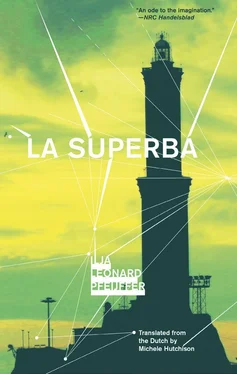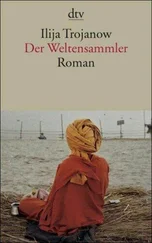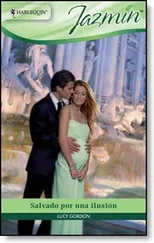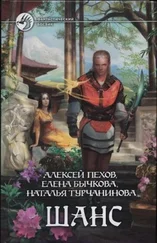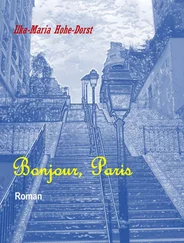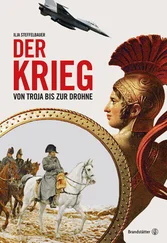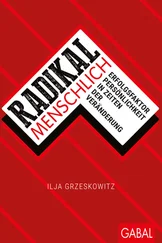He took a sip of his beer. He began to laugh. “It’s really quite funny if you think about it.”
“Where were you? In Sicily?”
“In Libya.”
14.
“It wouldn’t be long before the Libyan militia or the human traffickers who worked with them noticed us and everything would begin all over again — the hitting, the kicking, the spitting, the torture, and the rapes. And it would only be worse than the previous time because none of us had any money left — to compensate our hosts for the inconvenience, let’s say.
“We had to hide. I was just about to shout to the others, who were running on ahead of me, that this wasn’t Europe, but then I changed my mind. There were still forty-seven of us and it would be impossible to hide as such a large group. And how long would we be able to keep that up? And what would our plan be? I realized I only stood a chance if I was on my own. I decided not to warn the others. I let them go. That hurt, Ilja. It hurt a lot because I know they were walking right into the arms of their torturers.
“I went off to look for a hiding place. It wasn’t easy. I was on a wide beach that turned almost seamlessly into desert. There was hardly any vegetation. I instinctively continued to follow the tideline. I didn’t want to get too far from the sea because although I didn’t have the slightest notion of how I was going to manage to get away from here, the sea was my only prospect for salvation, the only route to freedom. After a while, I spotted something on the beach, about a hundred meters inland. It was an empty, rusty barrel. Probably had contained oil or gasoline. At least, it smelled like it had. I dug it out a bit and climbed in. After that I swept the sand back until there was just an opening left that was big enough for me to breathe and see what was happening on the beach.
“Night became day and I soon realized that my hiding place was far from comfortable. It was cramped, it stank, and long before noon, it became unbearably hot. Luckily, I’d brought a bottle of water and some bread from the Spanish fishing boat. But it became clear I wasn’t going to be able to stay here for long. At the same time, leaving my hiding place wasn’t a real alternative because Libyan militias were driving along the beach in their jeeps on After I while a regular basis. It was a rather comical situation. For fear of being taken prisoner, I’d made myself a prisoner and I didn’t have a clue how to escape my self-imposed captivity.”
He laughed. “Will you order another beer for me, Ilja? A big one, because I get incredibly thirsty remembering all this.”
“How long were you there in that oil barrel?”
“I was very lucky. During the third night, I was jolted out of my sleep by shouting. I wasn’t really sleeping, that was impossible in my awkward position, but I had dozed off. I saw a group of men walking over the beach. Around twenty-five black men and four armed Libyans swearing at them. They were walking toward the tideline. I recognized the ritual. They were being taken to a boat. I couldn’t see the boat from my position but there had to be a boat, nothing else was possible. My heart began to thud so loudly, I was almost worried they could hear it.
“The Libyans left. I heard the sound of attempts to get an outboard motor started. This was my chance. I didn’t hesitate for a second. I crawled out of my barrel and began to run as fast as I could. I’d never run that fast in my life. I got to the boat at the exact same moment the engine began to purr. I jumped onboard. The Libyans had seen me. They came running up. But they were too late. The boat was already moving. But the others weren’t very happy that I’d jumped in with them, uninvited and without a valid ticket. They tried to throw me into the sea. ‘You need me,’ I shouted. ‘I know the way.’ With some reluctance, they decided to believe me. And so I set off on the journey to the Promised Land for a second time.”
15.
“It was a terrible experience. The others were just as excited about their newly regained freedom and the fact that their big dream was finally coming true as I’d been the previous time. Only I knew what was coming next. I saw the jerry can of gasoline. It wasn’t any bigger than the one the Libyans had given us last time. I saw that we only had two bottles of water again. I told them we had to use it sparingly. They thought I was just a worrier. I said that Lampedusa was much further than they thought. They didn’t believe me. It was nearby, the Libyans had said so. We were probably nearly there. As they joked and laughed, I quietly sang ‘ Fatou yo .’
“The boat was just as big — just as small, I mean — as the last one. But there were fewer of us. Twenty-seven in total, all of us men, all of us about my age. Almost all Senegalese like me, but there were also two Nigerians, and a boy from the Ivory Coast. And because we weren’t as overloaded as last time, we hardly took on any water. We didn’t need to bail. So, luckily, there was something positive to say.”
Djiby laughed.
“You tell it all in such a happy way.”
“How do you think I should tell it, then? It was bad enough, the way it went, so it’s better we laugh about it.”
“And did the engine fail halfway?”
“Of course. Everything was exactly the same as the first time. The original elation made way for fear and the cold of the night and the original relief at dawn melted under the burning heat of the sun and when the gasoline ran out. It was all just as bad as the first time, apart from that, then it got much worse.”
“How long was it before you were rescued this time?”
“Twenty days.”
“But twenty days without food and water — no one can survive that.”
“That’s right. You’ve hit the nail on the head, Ilja. More than half of us didn’t survive. When we were finally intercepted by the Sibilla , an Italian navy boat that had sailed out for us after a small Sicilian fishing boat, the Pindaro , had spotted us and raised the alarm, there were only thirteen of us. Fourteen strong young men had died by then. We’d thrown their bodies into the sea. What else could we do? We no longer had the strength for the fourteenth. We just left him lying there and that was lucky because he wasn’t completely dead, he was in a coma.
“But all of us were practically comatose. We were in a truly pitiful state. We were all severely dehydrated and malnourished. When the Italian navy came, it was really difficult just gesturing with my hands for them to help us. Most of the others couldn’t even do that. Our lips were swollen and had burst from the sun and the salt. Our eyes were empty and hollow. We were ghosts. Moussa, a Senegalese boy, was the only one who could still speak. He was holding a necklace with a cross and said he was a Christian. He just kept repeating it.
“The captain of the Sibilla called for an air ambulance. The worst cases were taken to Palermo hospital. Along with six others, I was taken onboard the Sibilla and nursed there. At sunset, we sailed into the port of Lampedusa. I was in Europe at last.”
16.
“But Europe wasn’t what I’d imagined. It looked like Africa. All blacks. And I didn’t get very far with getting rich without trying. I’d never seen so many poverty-stricken black people in one place, not even in Africa. The only difference with Dakar was that the policemen were white. But they were just as bastardly in Dakar.
“The fact was Lampedusa was one big concentration camp. Big isn’t the right word. It was a small island. A rock in the sea. It was a small concentration camp. Too small. There wasn’t enough room for that many prisoners. And every day new ones arrived, while no one left the island because that wasn’t allowed. They needed papers for that and clearly that posed a major logistical problem to the Italian authorities — bringing papers to Lampedusa.
Читать дальше
